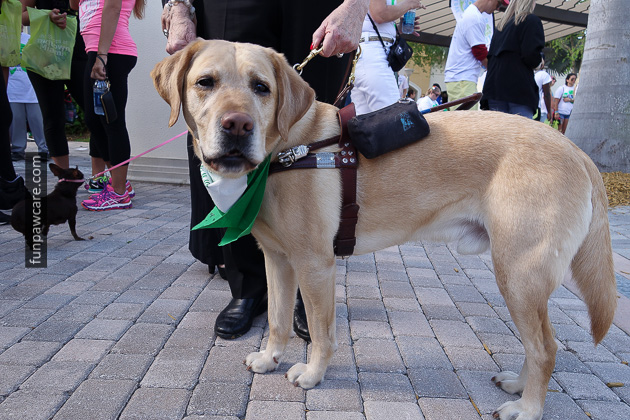
Service Dogs In Asia
(Updated October 2022)
A guide dog is trained to lead visually impaired people, while a service dog – otherwise known as a service animal – is specially trained to assist a person with a variety of physical and mental disabilities. According to the Americans with Disabilities Act (ADA), a service dog’s duties range from guiding or alerting people with visual or hearing impairments, pulling a wheelchair, reminding people with a mental disability to take medications or any other duties based on the person’s individual needs.
What Countries Allow Service Dogs?
While service dogs are protected under federal law in the United States, under the Americans with Disabilities Act (ADA), not all counties have laws protecting service animals or people with disabilities.
Because other countries don’t abide by American laws, a service dog from the United States would likely be viewed as a normal pet in other countries. Many countries recognize service dogs, however, every country is different and you will have to research each country you are visiting to see which countries allow service dogs and if so, what the requirements are.
Here are all of the service dog training products that we recommend
Because service dogs are crucial for a person with a disability to function adequately in their everyday life, denying access to these dogs in any public area is illegal in many countries worldwide, which includes South Korea. Public areas where service dogs are permitted include buses, restaurants, office buildings, etc. Additionally, Korea’s main airlines, Korean Air and Asiana Airlines allow service dogs to be brought into the cabin by passengers with disabilities with no size or weight restrictions placed on the dog. In fact, these airlines also allow pet dogs and cats to be brought into the cabin, although pets are subject to strict rules regarding size, weight, as well as storage throughout the flight.
Based on South Korean law, the penalty for denying access to a service dog in any area open to the public is a fine of 2 million Won, which is equivalent to $1800 USD. In addition, among the multitude of rules and regulations outlined by the Korean Animal Protection Law (KARA), Article 13 prohibits any experiments to be done on “animals that have served humans, such as Seeing Eye dogs or guide dogs.”
South Korea has gone a step further enacting smart and progressive laws providing all animals with legal status as sentient beings.
While the South Korean laws regarding service dogs are very thorough, service animals in neighboring countries tend to be misunderstood. According to laws in many Chinese cities, walking with a large dog through the streets is prohibited. Subsequently, access to public areas is often denied to service dogs and people who need them. Japan, on the other hand, passed the Law Concerning Service Dogs for People with Disabilities in 2002, and yet service dogs are often denied access to restaurants due to concerns about cleanliness. Singapore has also recently passed a law allowing service dogs access to restaurants and public transportation, although they are restricted to a specific area and must not cause discomfort to other members of the public.
It is clear that many countries around the world still need to be better educated about the importance of service dogs. Following South Korea’s example, these countries should create and enforce strict laws regarding access to service dogs in any areas open to the public as well as enforcing consequences for denying such access.

What about the Philippines…